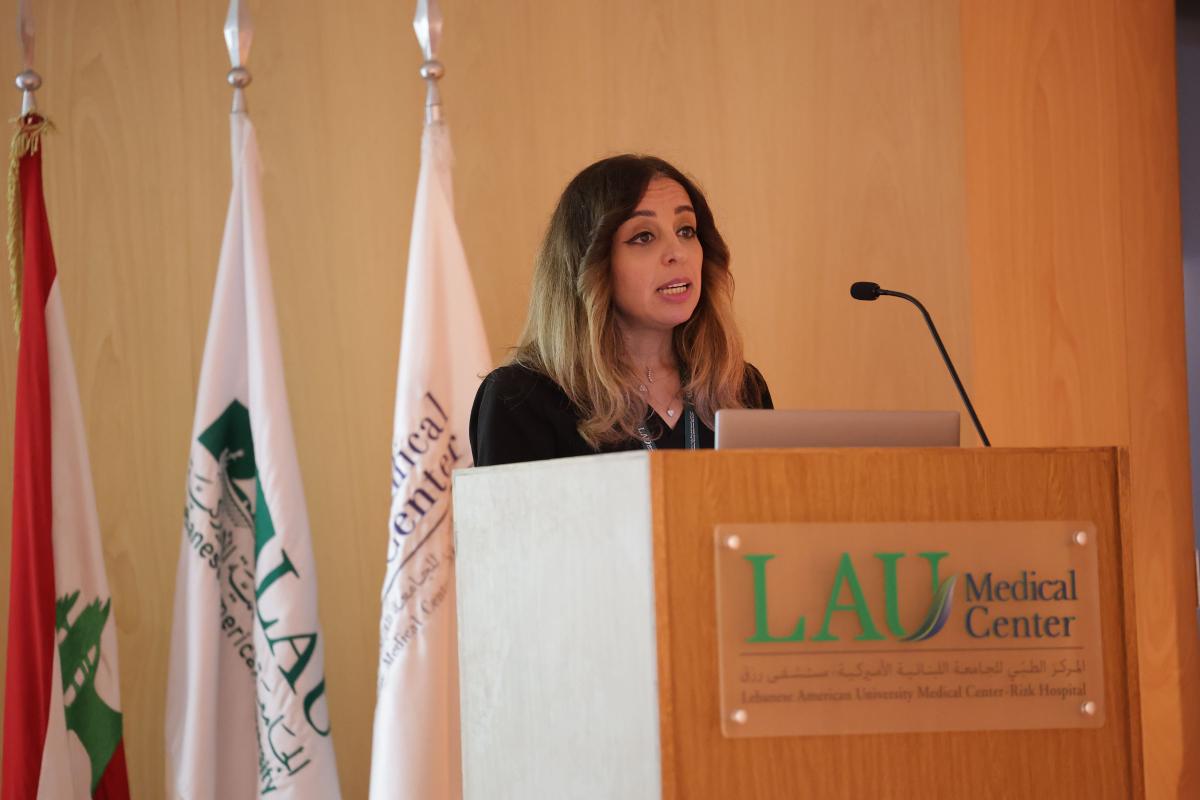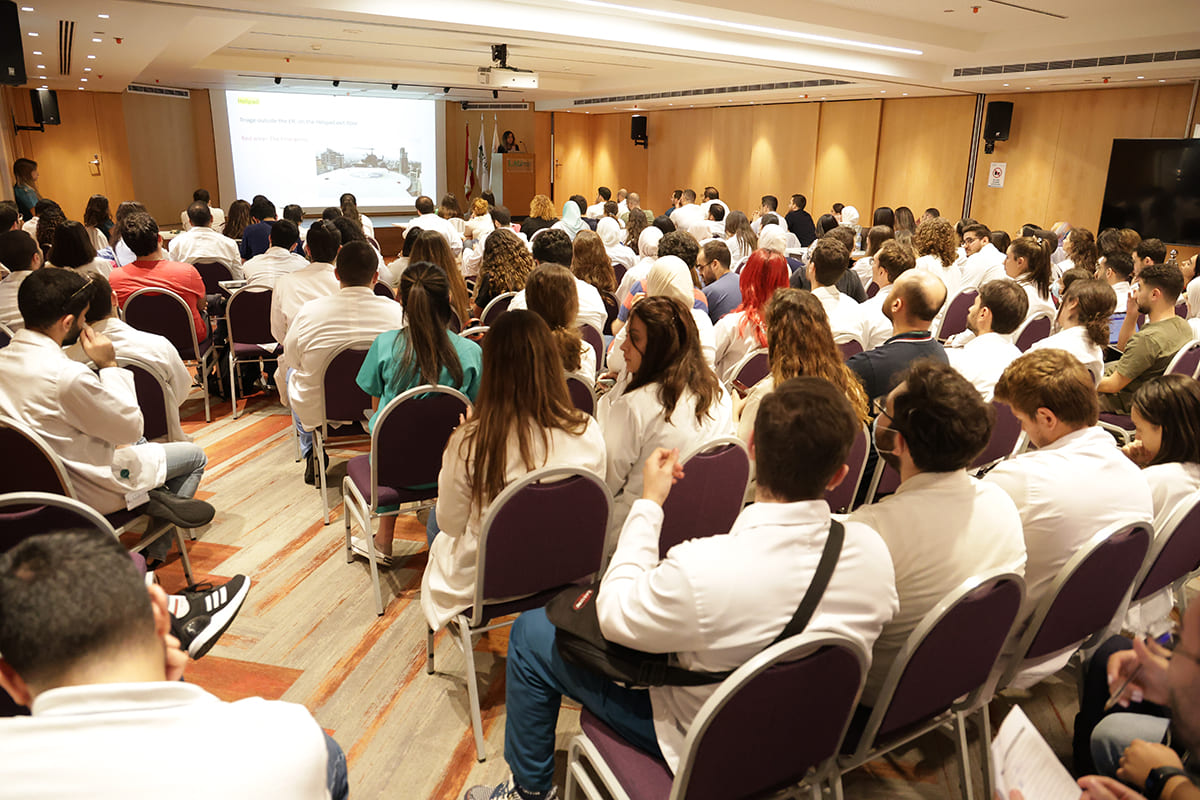Dr. Mariana El Helou: Maintaining Medical Vigilance in Times of Crisis
The head of the Emergency Medicine Division at the LAU Gilbert and Rose-Marie Chagoury School of Medicine shares her journey from the ER to disaster management through research, academia, and global collaborations.
In the hectic setting of a hospital’s emergency room, strong leadership and streamlined communication for urgent patient care form the bedrock of effective management.
For Dr. Mariana El Helou, head of the Emergency Medicine Division at the LAU Gilbert and Rose-Marie Chagoury School of Medicine, leading the emergency room takes more than just a passion for saving lives in critical conditions; it is a mission that requires consistently enhancing one’s expertise.
Having been at the frontline during a global pandemic and the third largest non-nuclear explosion in the world, Dr. Helou draws on her rich, first-hand experience in unprecedented times of crisis to foster a culture of preparedness at the medical center through practical initiatives, extensive research and international collaborations.
After specializing in Disaster Management, a move which she said, “seemed not only logical but imperative in a country like Lebanon that is susceptible to both man-made and natural disasters,” she remained committed to expanding her knowledge and expertise in emergency and disaster medicine. As a result, her contributions to crisis management have come into focus through enhanced research with international teams, which she said “benefits the international community and gives the medical center greater visibility.”
Her extensive research, both individual and collaborative, spans several areas of disaster management, such as health preparedness against different threats, mass casualty treatment, emergency department management during the COVID-19 pandemic, and most notably the analysis of injury patterns and challenges confronted by hospitals following the Beirut explosion.
The mass influx of COVID-19 cases and casualties from the August 4 explosion – more than 400 injured – presented unique challenges, she said. While the pandemic, which unfolded progressively, allowed for healthcare providers to be somewhat prepared, “the aftermath of the Beirut blast was harder to manage with the sudden influx of patients within a short time frame, despite the emergency plan in place,” she added.
Based on the lessons learned, Dr. Helou has been sharing her insights through presentations on international platforms, focusing on the measures taken by the hospital during that period.
Her contributions were recognized by the World Health Organization, where Dr. Helou earned her certification in Mass Casualty Management and currently serves as a professional mass casualty trainer for European institutions within the organization.
Her efforts to improve the local emergency care system extend to academia, where she mentors aspiring doctors across various disciplines. As a simulation instructor and the director of emergency and rehabilitation clerkship at the Gilbert and Rose-Marie Chagoury School of Medicine, she applies her expertise to shaping the education of future medical professionals. Furthermore, her academic influence has expanded internationally; she teaches the residential course for the European Master in Disaster Medicine, conducted in Italy.
A member of international societies like the European Society for Emergency Medicine and the World Association of Disaster and Emergency Medicine, Dr. El Helou noted the importance of collaboration between emergency physicians around the globe.
“These societies play a pivotal role in facilitating knowledge exchange through annual global congresses and networking platforms that enrich our collective contributions to the academic field,” she added. “Their tangible effect is reflected in practical initiatives, such as hosting fellow members at the LAU medical center or having them speak at our conferences.”
Drawing on these opportunities and her broad knowledge in the field, she recently took on an initiative to oversee the revision of the hospital emergency plan and conduct an emergency drill at the LAU Medical Center-Rizk Hospital.

